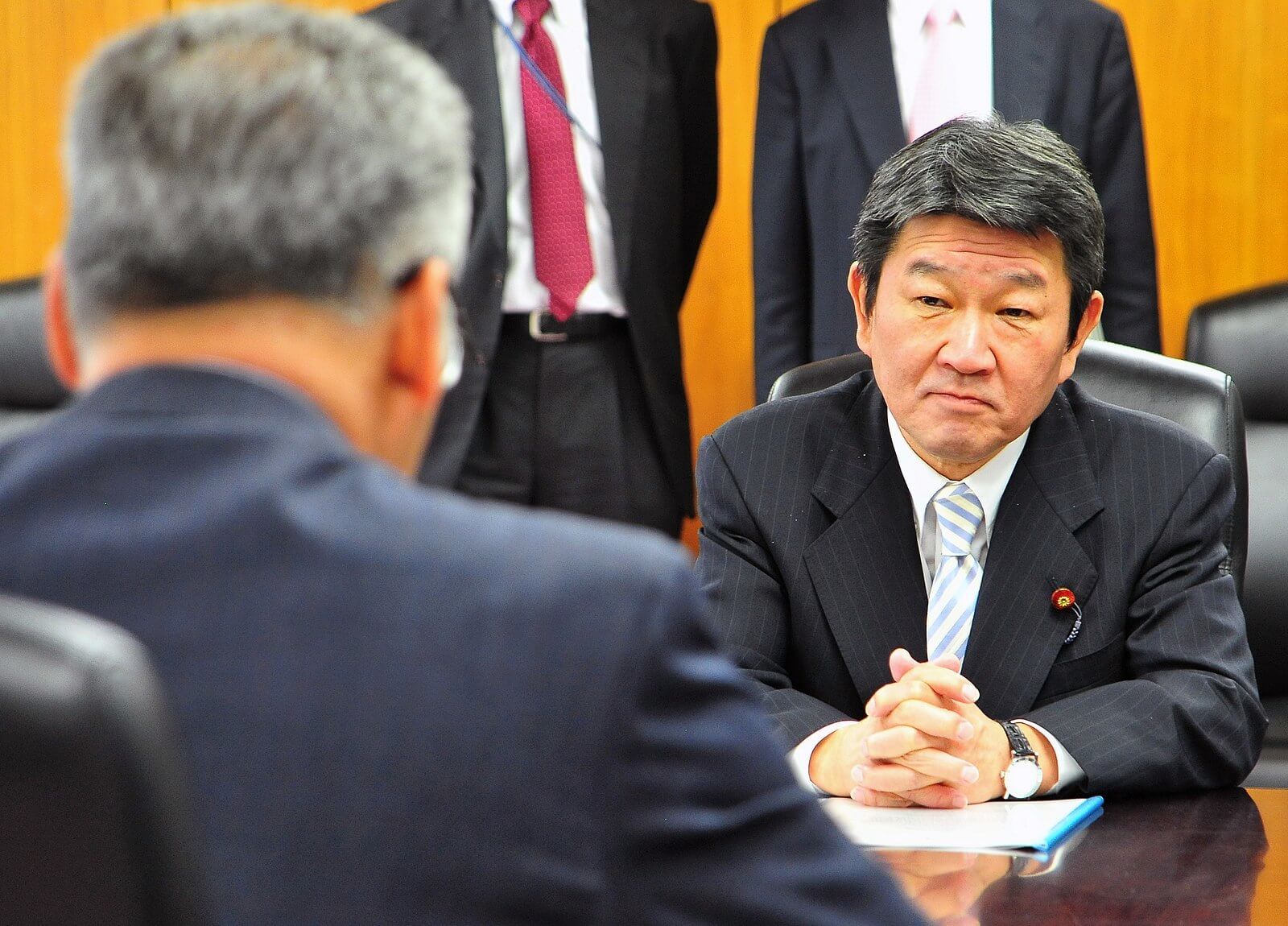On Monday, Japanese Foreign Minister (FM) Toshimitsu Motegi was invited to address the European Union’s (EU) Foreign Affairs Council, where he delivered his statement after welcoming notes by EU foreign policy chief Josep Borrell.
In his address, which represented the first time a Japanese diplomat has spoken at such a gathering, Motegi briefed the bloc’s members on his country’s efforts towards a “free and open Indo-Pacific (FOIP)”. Motegi explained that Japan has been promoting the vision of FOIP, with a focus on the following three pillars: “promotion and consolidation of fundamental principles of the international community”, “pursuit of economic prosperity including through ensuring connectivity,” and a “commitment to peace and stability including maritime security”. The minister further said that FOIP was “an inclusive concept” and was “open to cooperation with any countries which share the same values and vision”.
Additionally, the two sides also reiterated the importance of promoting cooperation in areas including “connectivity, maritime security, environment and climate change, as well as digital, recognizing the need to exercise leadership in the international community”. In this respect, Japan commended Europe’s growing interest in the Indo-Pacific. His message comes at a time when European countries are growing increasingly sceptical of Chinese dominance in the Indo-Pacific and are developing their own security strategies against the backdrop of China’s continued increase in its military presence.
Germany, the Netherlands, and France, for example, have recently published guidelines on the Indo-Pacific, and have stressed the importance of the rule of law and promoting open markets in the region. In fact, Germany, despite possessing no territories of its own in the region, is now considering sending a possible naval frigate to Japan, South Korea, and Australia as a first step towards realising the new strategy; however, Berlin has insisted that the plan is “not aimed at anyone”.
Speaking on security collaboration with other Western powers, the Japanese FM spoke of the importance of the United States’ (US) engagement in the region through security drills like the Quad, along with other trilateral and bilateral forums with its Indo-Pacific neighbours. Motegi added that working with “other like-minded countries including the United States” was important. The minister also showed support for the ASEAN Outlook on the Indo-Pacific (AOIP) and confirmed that FOIP and AOIP “share fundamental principles” as discussed in the recent Japan-ASEAN summit meeting.
The Japanese FM also touched on other security issues related to North Korea and its continued abduction of Japanese citizens over the past five decades, which Japan considers a “serious” violation of human rights and a challenge to “fundamental principles including democracy”. In this context, Motegi requested the EU’s support on the release of 17 Japanese citizens who were abducted by agents of the North Korean Government from 1977 to 1983; it is though that the the actual numbers is in the hundreds.
Motegi’s latest engagement illustrates how Japan is seeking to bolster its alliances across the globe and reduce its reliance on China, and follows recent interactions with officials from Mexico, Argentina, Brazil, Paraguay, Senegal, Kenya, and Nigeria.
Japan FM Motegi Promotes Free and Open Indo-Pacific at EU Foreign Affairs Council
Japanese Foreign Minister Toshimitsu Motegi was invited to join the EU Foreign Affairs Council, where he stressed on the need for a “free and open Indo-Pacific”.
January 27, 2021

SOURCE: CL BRIEF
